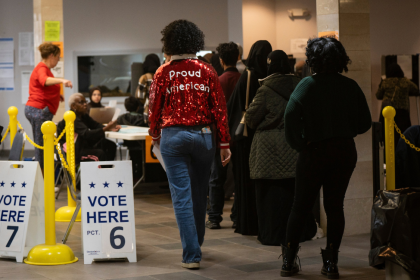In a development that has stunned literary circles and political observers alike, President Donald Trump has terminated Dr. Carla Hayden from her position as the Librarian of Congress. This abrupt dismissal represents more than a staffing change—it signals a pivotal shift in the relationship between political power and one of America’s premier knowledge institutions. The decision comes amid increasing tensions over whose narratives deserve representation in the nation’s cultural repositories and who gets to make those determinations.
Dr. Hayden’s removal from the prestigious role she held as the first woman and first African American Librarian of Congress marks a significant moment in the institution’s long history. The Library of Congress, often characterized as the People’s Library, houses invaluable collections documenting American heritage and serves as a critical resource for researchers, historians, and ordinary citizens seeking to understand the nation’s past and present. Under Hayden’s stewardship, the institution had expanded its digital accessibility initiatives and developed outreach programs specifically designed to serve Americans in rural and underrepresented communities.
1. Claims of “woke” content promotion
According to the conservative advocacy organization American Accountability Foundation, Hayden faced criticism for allegedly promoting what they characterized as woke content through Library programs. This criticism reflects a growing divide over how cultural institutions should address complex social issues and whose perspectives should be represented in public collections. The AAF specifically targeted certain materials as being inconsistent with what they believe should be available in federally funded institutions.
2. Dispute over children’s literature selections
A key point of contention centered on children’s books available through Library programs. Conservative groups labeled some selections as radical, suggesting that materials addressing diverse family structures, racial history, and social justice topics were inappropriate for younger readers. Under Hayden’s leadership, the Library had expanded its children’s collections to include works reflecting the experiences of various American communities—an approach now under scrutiny.
3. Tension over “America First” alignment
The AAF’s president suggested that the Library’s collections and programming should more explicitly support an America First perspective. This viewpoint indicates an expectation that the Librarian of Congress should prioritize political alignment with the current administration’s positions rather than maintaining the institution’s traditional emphasis on comprehensive preservation and accessibility of diverse materials. This fundamental disagreement about institutional purpose appears central to the dismissal decision.

4. Expanded digital access initiatives
Hayden‘s tenure was characterized by significant digitization efforts designed to make the Library’s resources available to citizens regardless of geographic location or economic status. These initiatives, while widely praised by library advocates, apparently conflicted with preferences for more controlled access to certain materials. Her push to democratize knowledge access may have been perceived as undermining traditional gatekeeping functions.
5. Part of broader administrative purge
The termination follows a pattern of removals across multiple federal agencies where specialized expertise has traditionally been valued above political alignment. Similar dismissals have occurred at FEMA and other institutions, suggesting a systematic approach to replacing career officials with individuals more closely aligned with the administration’s priorities. Hayden’s removal appears consistent with this broader personnel strategy rather than being solely related to Library-specific issues.
6. Communication style and representation
As the first woman and first African American to hold this prestigious position, Hayden’s approach to public engagement and institutional representation differed from her predecessors. Her emphasis on making the Library relevant to diverse communities and her public statements about knowledge access as a democratic necessity may have clashed with expectations from some political quarters about appropriate messaging for federal appointees.
7. Dispute over historical narratives
Perhaps most fundamentally, the dismissal reflects deep disagreement over how American history should be presented and whose experiences merit inclusion in the national narrative. Under Hayden, the Library expanded access to materials documenting social movements, civil rights history, and previously marginalized voices. These efforts to present a more comprehensive historical record apparently conflicted with preferences for more traditional historical framing.
The White House delivered the news through a brief email stating that Hayden’s position was terminated effective immediately, with just a perfunctory acknowledgment of her service. Democratic leaders have responded forcefully, with Senate Democratic Leader Chuck Schumer characterizing Hayden as a trailblazer and scholar, while House Minority Leader Hakeem Jeffries positioned her removal within what he described as concerning trends regarding historical representation and knowledge access.
For citizens concerned about maintaining access to diverse historical perspectives, this development represents a significant moment that transcends partisan politics. When knowledge institutions become battlegrounds for ideological control, the foundation of informed civic participation—access to comprehensive information—becomes increasingly precarious. The dismissal thus serves as both an individual employment action and a broader statement about priorities for cultural institutions in contemporary America.















